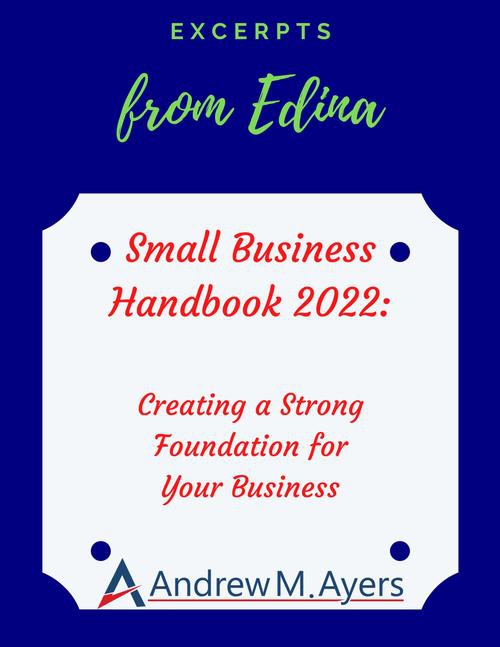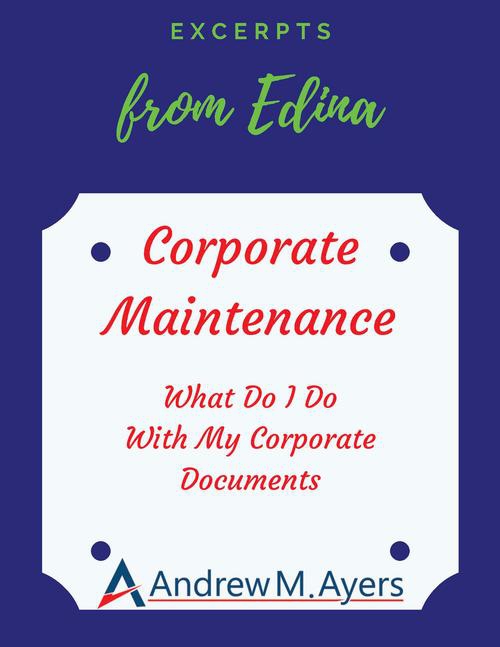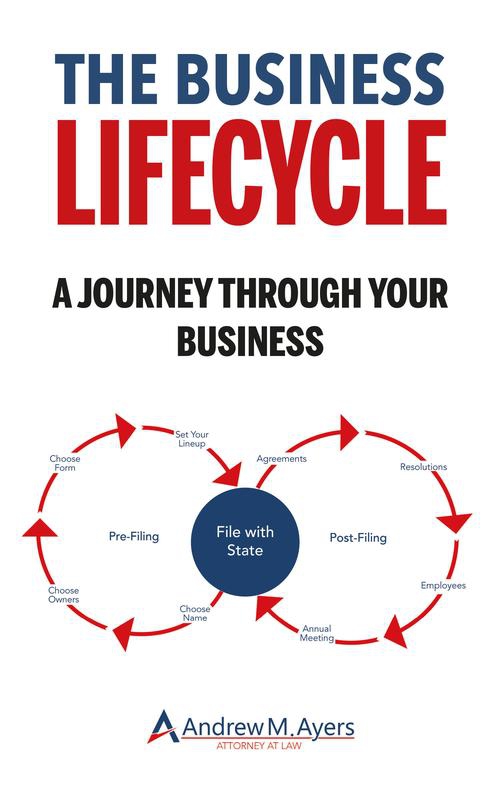Now that we've got your company filed, the next step is going to be looking at the agreements that are needed for your company. This is another step of the process where it's important to consult with your attorney to make sure you've got the right agreements in place. These are generally referred to as foundational agreements, things like operating agreements, partnership agreements, and bylaws. These various agreements set forth the rights of the various owners of the company.
Many people form their company and forget to get their agreements in place. Years ago I consulted with a company that was working on social media for a very important celebrity. They had been in business for years, however, they never signed the agreements that they downloaded from the website they used to form the company. Now that the celebrity was moving on to a different company, they were going to try to work in a different field, but they had no agreement to figure out how they were going to divide up the new profits. So they came to me so that we could get their operating agreement into place.
DIVORCE AND OPERATING AGREEMENTS
One of the reasons why these operating agreements can become very important is what happens if there's something that goes on at home with one of the owners. For example, if you have a business with four partners and one of the partners is going through a divorce, this can affect the ownership of your company.
If you don't have an agreement, the law provides your company with very little protection from the divorce court and any orders they may enter regarding the spouse, and the soon to be former spouse, as it relates to the business ownership interest. There's no insurance you can buy for a business to protect against the divorce of one of your owners.
However, using an operating agreement you can at least provide some protection. For example, your operating agreement can include a provision that allows the business to buy back an owner's interest. Buying back the interest can be triggered by a variety of events. In this case, the divorce of an owner could be one of those events.
In addition, you can place other restrictions on who can own the business. These restrictions can include,
- Restricting who can own the company and limit them to a specific group of people,
- Automatically converting an owner's interest into a non-voting interest if a certain event happens, or
- Restricting the transfer of ownership to a third party without the prior written consent of the owners.
These kinds of clauses in an operating agreement can serve to protect you from a divorcing spouse. However, if you're truly concerned about the effect of a divorce, you can also include a prohibition that an ex-spouse cannot receive any interest in the business. Now, you're inviting litigation and the divorce court will likely have a contest over that clause, but it's safer to have that in there in case the court awards the ex-spouse an interest. Many states will find that the interest is only awarded as an assignee, not an owner, meaning that they wouldn't then be able to participate in the business and have voting rights.
This is just one of the issues that can arise when a business owner goes through a divorce. And it shows the importance of having an operating agreement for your company.
There's a variety of clauses that you will run into in your agreement, things like venue and jurisdiction and employees and independent contractors at the end of your agreement. These seemed like “boilerplate” - just basic terms to attorneys - but it's important that you understand what you're signing. You need to understand what your company has agreed to and what the setup of your company is. It's one of the foundations that I have of working with my office. I want to make sure that all of my clients read all their agreements and understand everything before they sign them.
Next Steps
If you've already got agreements that you'd like reviewed, or if you are starting from scratch and need agreements prepared, let's set up a Legal Strategy Session to discuss the best options for you. You can also download the Business Lifecycle report for more information.





